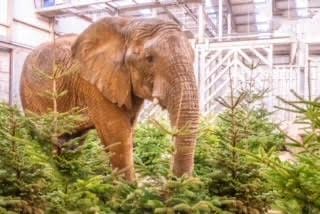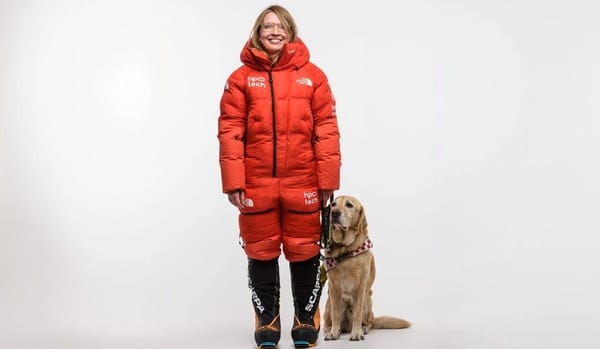Hope in Stripes: Rare Female Mountain Bongo Calf Born at Woburn Safari Park After a Decade
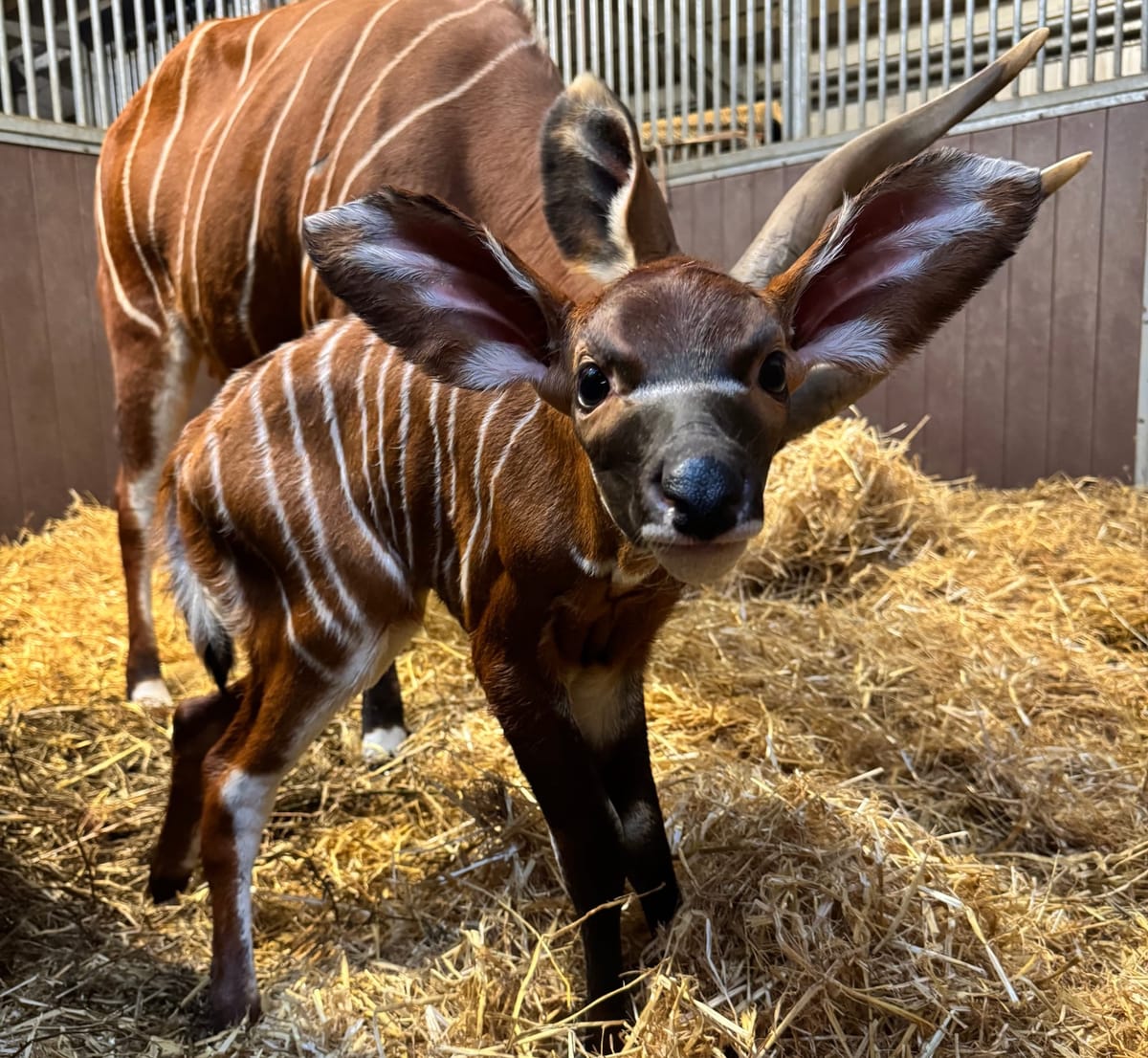
By Animals Correspondent
Woburn Safari Park is celebrating the birth of a female Eastern Mountain Bongo calf — the first of her kind born at the park in more than a decade. The arrival marks a significant step forward for one of the world’s most endangered large mammals.
With fewer than 100 individuals remaining in the wild, confined to small pockets of Kenya’s high-altitude montane forests, the Eastern Mountain Bongo teeters on the brink of extinction.
The birth offers fresh hope for the survival of the species and highlights the importance of global conservation breeding programmes.
Born at approximately 8:15am on 3 October, the calf is the second offspring for mother Othaya, a popular resident at Woburn Safari Park.
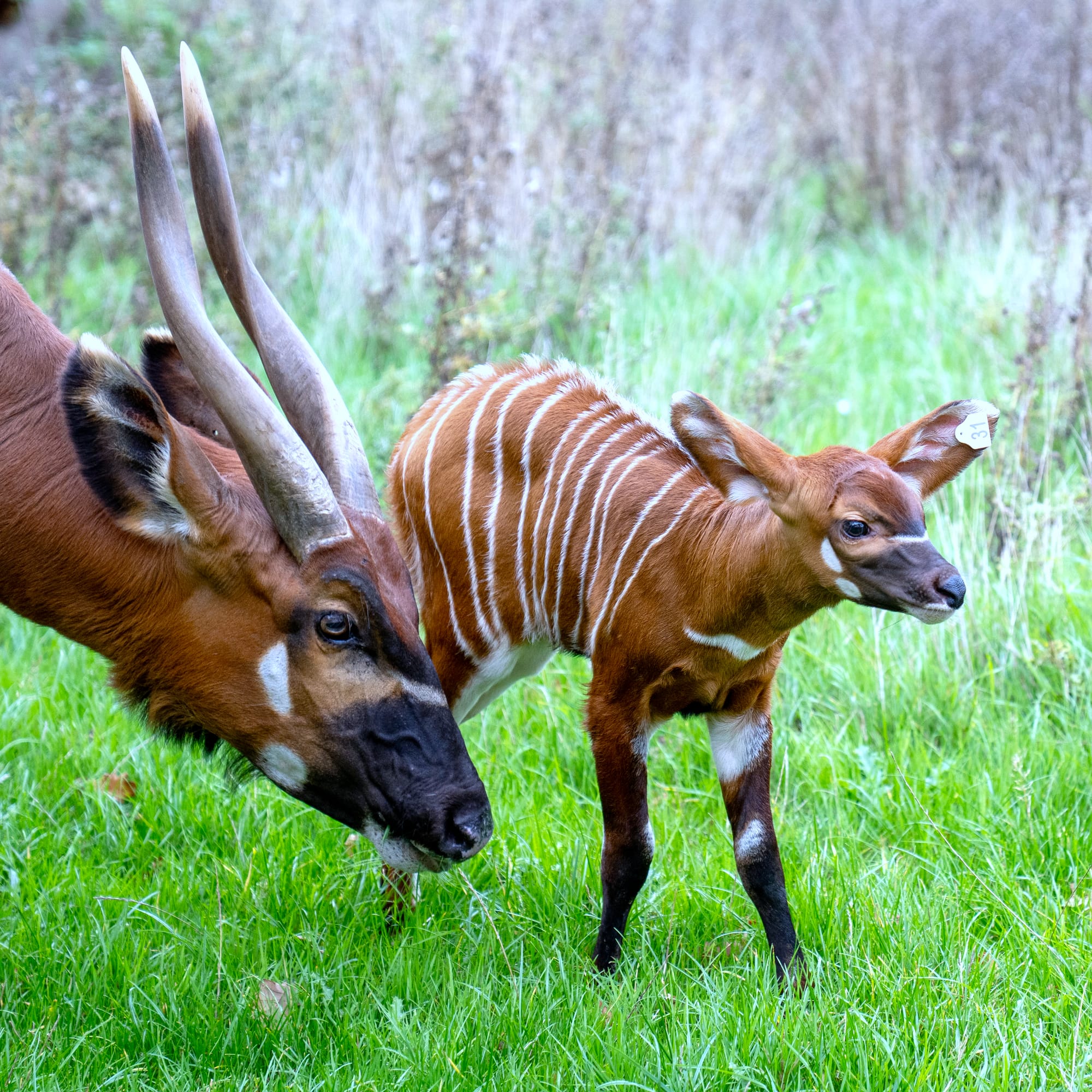
Othaya previously gave birth to a male calf, Djembe, last year. After facing complications during that delivery, her care team, led by Head of Section Tom Robson, monitored her closely throughout the night.
“This is Othaya’s second calf, and she struggled giving birth to her first, so we checked her frequently throughout the night,” said Robson. “Thankfully all was well and we’re happy to see a strong-looking calf. Othaya struggled to feed the new arrival at first, so we provided a supplement, but now mum is doing a great job. We’re all very pleased — as it’s a female calf, she will hopefully go on to breed in the future and play a part in the survival of the bongo species.”
The birth forms part of an international breeding programme that aims to preserve and restore the Eastern Mountain Bongo population.
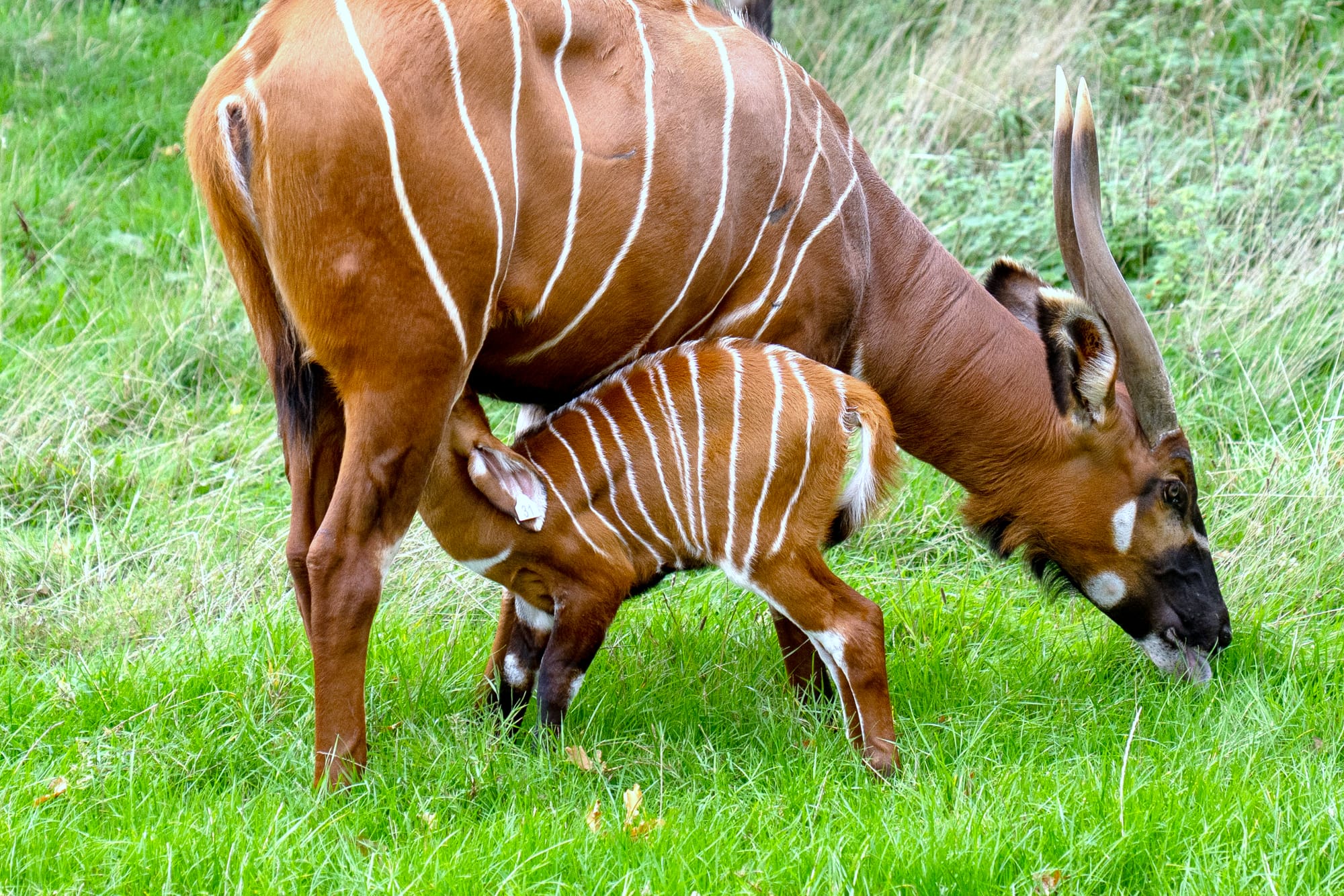
Each successful birth in captivity contributes vital genetic diversity to a species facing threats from habitat destruction, poaching, and disease.
Already showing signs of healthy development, the young calf has begun bonding with her older siblings, Djembe and Ziggy, both born at Woburn in recent years.
With her deep chestnut coat and distinctive white stripes, the calf displays the species’ remarkable natural camouflage — an adaptation that allows bongos to blend seamlessly into the dappled light of their forest homes. Her oversized ears, finely tuned to detect the faintest sounds, are another defining feature of a species evolved to thrive in Kenya’s dense, misty highland forests.
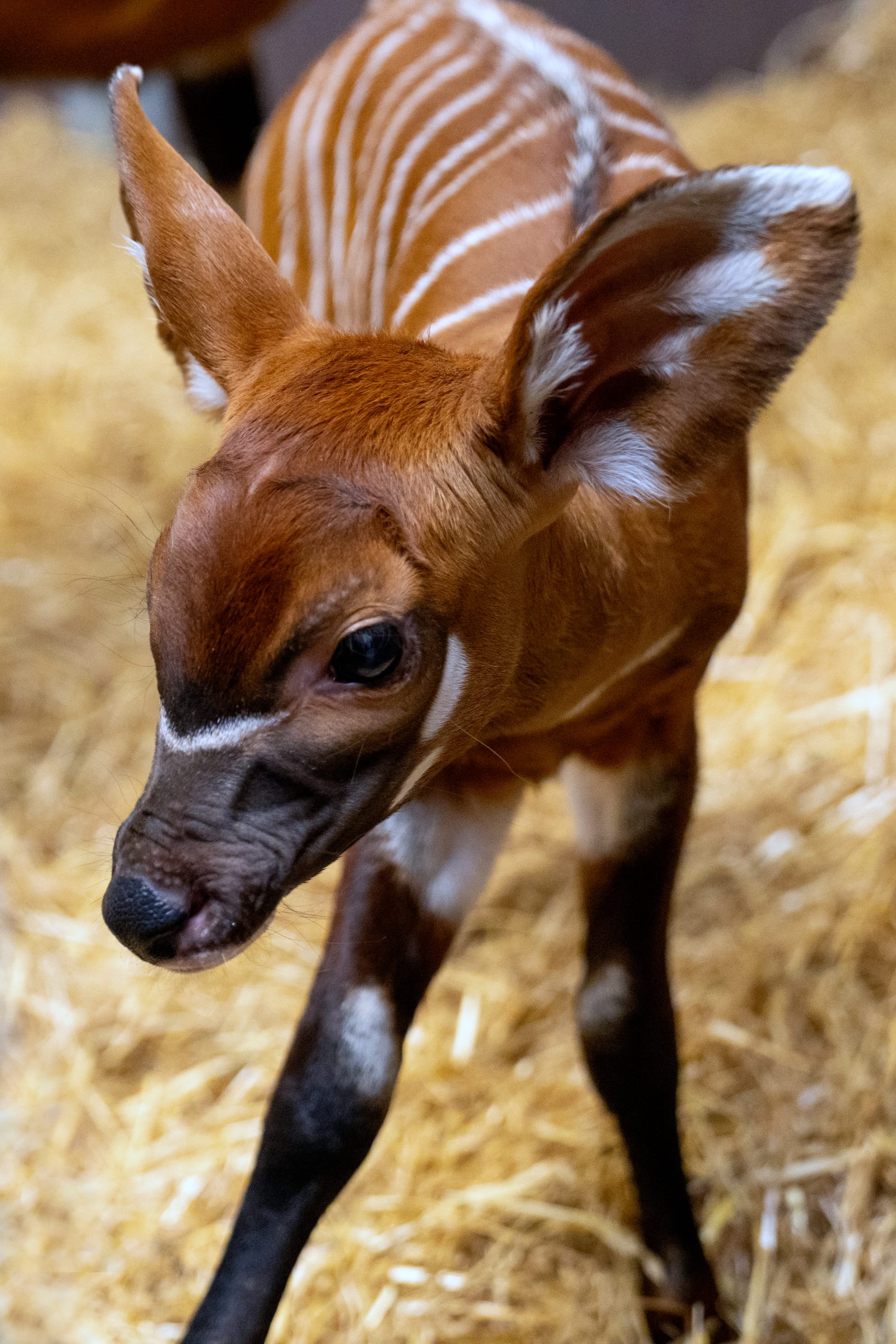
Her birth not only adds a welcome splash of colour to Woburn’s animal family but also represents a hopeful step toward securing a future for one of Africa’s most elusive and beautiful antelopes.
Don’t miss your chance to witness this extraordinary moment in person.
Visit Woburn Safari Park and see the bongo family as you drive through the African Forest reserve in the Road Safari. Learn more about our endangered species programme at www.woburnsafari.co.uk
If you have a positive story or uplifting news to share, we’d love to hear from you!
Just email us at news@goodnewspost.co.uk.
Whether it's a local hero, an act of kindness, or a personal win, your story could help spread joy and improve someone’s mental health. Let’s make the world a little brighter, one good news story at a time.
And don’t forget—you can sign up for free to get the latest feel-good stories straight to your inbox!
First female Eastern Mountain Bongo calf born in over a decade offers new hope for a critically endangered species
Woburn Safari Park has welcomed the birth of a female Eastern mountain bongo calf, a rare and significant milestone for one of the world’s most endangered large mammals. With fewer than 100 individuals remaining in the wild, confined to fragmented pockets of confined to Kenya’s high-altitude montane forests - dense, misty habitats that are home to some of Africa’s most elusive wildlife. This birth represents a vital step forward for this antelope species on the brink of extinction.
Eastern mountain bongo have suffered devastating losses due to habitat destruction, poaching and disease. Every successful birth in a managed breeding programme is a meaningful contribution to their conservation. Born at approximately 8:15am on 3rd October, this calf is the first female of her kind born at Woburn Safari Park in over a decade - a hopeful sign for the future of the species.
The calf’s mother, Othaya, is a familiar favourite among visitors. One of twins and already mother to male calf Djembe, born at Woburn last year. Due to Othaya’s previous challenges during Djembe’s birth, Head of Section, Tom Robson monitored her closely throughout the night. Tom said:
“This is Othaya’s second calf, and she struggled giving birth to her first, so we checked her frequently throughout the night. Thankfully all was well and we’re happy to see a strong-looking calf. Othaya struggled to feed the new arrival at first, so we provided a supplement, but now mum is doing a great job. We’re all very pleased, as it’s a female calf she will hopefully go on to breed in the future and play a part in the survival of the bongo species.”
The birth of this baby bongo is not only a rare event; it’s a strategic win for global conservation. As part of an endangered species breeding programme, her arrival strengthens Woburn Safari Park’s role in reversing the decline of Eastern Mountain bongos.
Already, the calf is showing signs of healthy development and has begun bonding with her older siblings, Djembe and Ziggy, both born at Woburn in recent years.
With her vivid chestnut coat marked by white stripes, the young bongo calf showcases the species’ natural camouflage - a striking adaptation that helps them vanish into the dappled light of forest understorey. Her oversized ears, finely tuned to detect the faintest rustle or call, are not only visually distinctive but vital for survival in dense, echoing terrain. These features, while visually arresting to visitors, are evolutionary tools honed for life in one of Africa’s most elusive habitats.
Don’t miss your chance to witness this extraordinary moment in person.
Visit Woburn Safari Park and see the bongo family as you drive through the African Forest reserve in the Road Safari. Learn more about our endangered species programme at www.woburnsafari.co.uk


